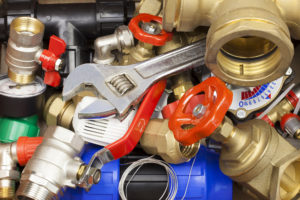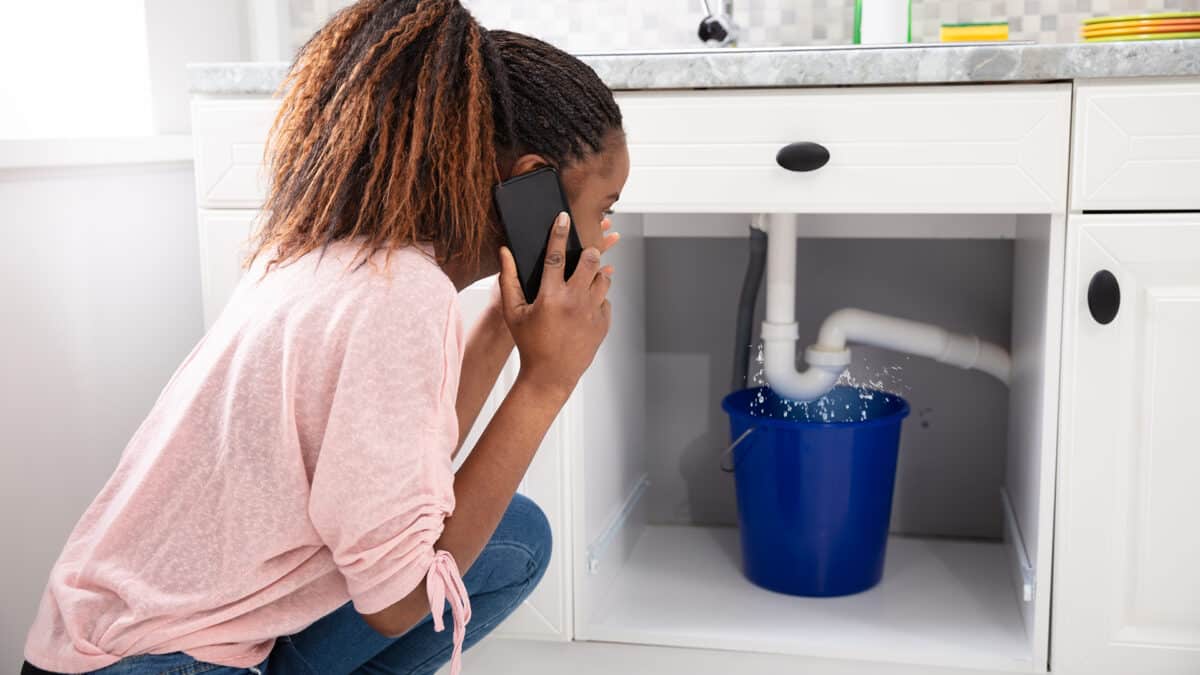Emergency Solutions to Use Until Professional Help Arrives
Emergency Solutions to Use Until Professional Help Arrives
Blog Article
This great article down the page pertaining to Expert Tips for Managing a Plumbing Emergency Until Help Arrives is extremely entertaining. Read on and draw your own personal results.

Pipes emergency situations can strike any time, creating stress and possible damage to your home. Whether it's a ruptured pipeline, a stopped up drain, or a leaking tap, understanding exactly how to handle the circumstance up until an expert plumbing shows up can save you from further problems. This short article offers vital emergency plumbing suggestions to assist you reduce damages and reclaim control throughout a pipes dilemma.
Shut off the Water System
The primary step in any type of plumbing emergency is to shut off the water supply. For localized issues, such as a dripping tap or toilet, switch off the shutoff near the fixture. In the case of a major leakage or ruptured pipe, locate your home's main water shut-off shutoff and transform it off right away. Understanding the location of these shutoffs ahead of time can conserve beneficial time throughout an emergency.
Address Small Leakages with Momentary Fixes
Small leakages can promptly end up being considerable problems if left uncontrolled. Utilize these temporary solutions up until professional aid shows up:
While these solutions aren't long-term, they can help lessen water loss and damage.
Unclog Drains Pipes Safely
A clogged up drain can be an aggravating and untidy issue. Below's how to tackle it:
If these approaches don't function, stay clear of using too much force, as it may get worse the blockage.
Handle Overflowing Toilets
An overruning toilet can trigger prompt mayhem. Right here's what you should do:
Shut down Your Hot Water Heater
In certain emergencies, such as a ruptured pipeline, it's important to shut down your water heater. This avoids overheating or damages to the device when water quits moving. Turn off the power supply to the water heater (electric or gas) and let it cool off to stay clear of possible threats.
Temporarily Stop a Burst Pipe
A ruptured pipe can lead to significant water damage in minutes. To reduce the problem:
Call a professional plumber immediately to resolve the issue permanently.
Deal With Frozen Pipes Carefully
In cooler environments, frozen pipes are a common emergency. If you think a frozen pipe:
Avoid Further Damage
Taking quick activity to decrease damages can conserve you money and time over time. Right here's how:
. Have an Emergency Situation Pipes Kit
Prepare a fundamental plumbing emergency situation package to manage minor issues properly. Your set ought to include:
Having these devices handy can make a considerable difference in your capacity to handle emergencies.
Know When to Call a Specialist.
While quick fixes can assist temporarily, particular pipes issues call for instant professional focus. Call a plumbing technician if:.
Immediately getting in touch with an expert ensures the concern is fixed appropriately and avoids more problems.
Verdict.
Plumbing emergency situations can be overwhelming, yet with the best expertise and tools, you can handle the situation successfully until assistance gets here. By shutting off the water system, resolving small leakages, and using momentary fixes, you can reduce damages and keep your home safe. Keep in mind, these pointers are short-lived services; constantly consult a licensed plumbing technician to take care of the root cause of the issue. Prep work and quick thinking are your finest allies in any kind of plumbing emergency.
8 Helpful Tips for Managing Plumbing Emergencies at Home
If your plumbing system hasn’t failed once, wait for it because almost everyone has a story to tell. Sometimes, it could be simple emergencies such as a leaking pipe, a blocked cistern, or even a big burst pipe. In situations like this, you need to have some handy tips to save you some money and from possible damages.
Take care of minor issues early.
Sometimes, you could have avoided an emergency by taking proactive measures while it was still early. Some major plumbing emergencies can be a result of an ignored minor issue. We recommend that you have items like plumbing tapes and other related items. A plumbing tape can allow you to manage minor leaks before the plumber arrives.
Cut off the water supply.
This tip is essential in almost any type of leakage problem. For problems like minor leakages in the toilet or kitchen, turn off the supply that takes water to the affected pipes. If the leakage is a major pipe, you must shut off the supply valve to the entire building. This will help you avoid flooding your home and neighbors if you share a flat.
Know your plumbing system
Folks typically move into a new apartment without understanding the water supply around the building. This can prove disastrous if a water emergency arises and the plumber is far away. The previous tip will prove useless if you don’t practice this one. More importantly, know where your water shut-off valve is located – you’ll need that knowledge to prevent potential home floods.
Have some common handy tools
There are lots of plumbing emergencies that you can handle without hiring a plumber. That’s why you must keep some tools available always. Some tools that you can use to fix simple plumbing emergencies easily include plumbing tapes, screwdrivers, thread seal tapes, plungers, pliers, tape measures, and rubber gloves.
Insulate your pipes from cold
You’ll save yourself from many plumbing expenses if you protect your water pipes from the cold. This is because of the harmful effects that cold weather can have on your pipes. During winter, your pipes can burst from being overly expected to freezing temperatures. So, make sure insulators are there to keep the pipes working correctly.
Avoid practices that will clog your toilet.
Many people indulge in practices that can damage the plumbing system of the entire building. One of these is when they use their toilet to dispose-off garbage. They flush all kinds of things, such as paper towels, bandages, hairs, female sanitary products, etc., down the toilet. This will block your toilet in the long run, incurring unnecessary expenditures. Dump such waste in the trash instead.
Check your dials regularly.
Sometimes, there could be leakages in your home without noticing them in time. So, constantly monitor your water meter dial. If the dial is reading when there is nobody using water, this is an indicator that there is leaking. Check for leaks immediately. Call a plumber as soon as possible if you can’t find any.
https://www.constructionplacements.com/8-helpful-tips-for-managing-plumbing-emergencies-at-home/

I discovered that blog post on while doing research the search engines. For those who enjoyed our article please be sure to pass it around. Thanks a lot for your time spent reading it.
Book Report this page